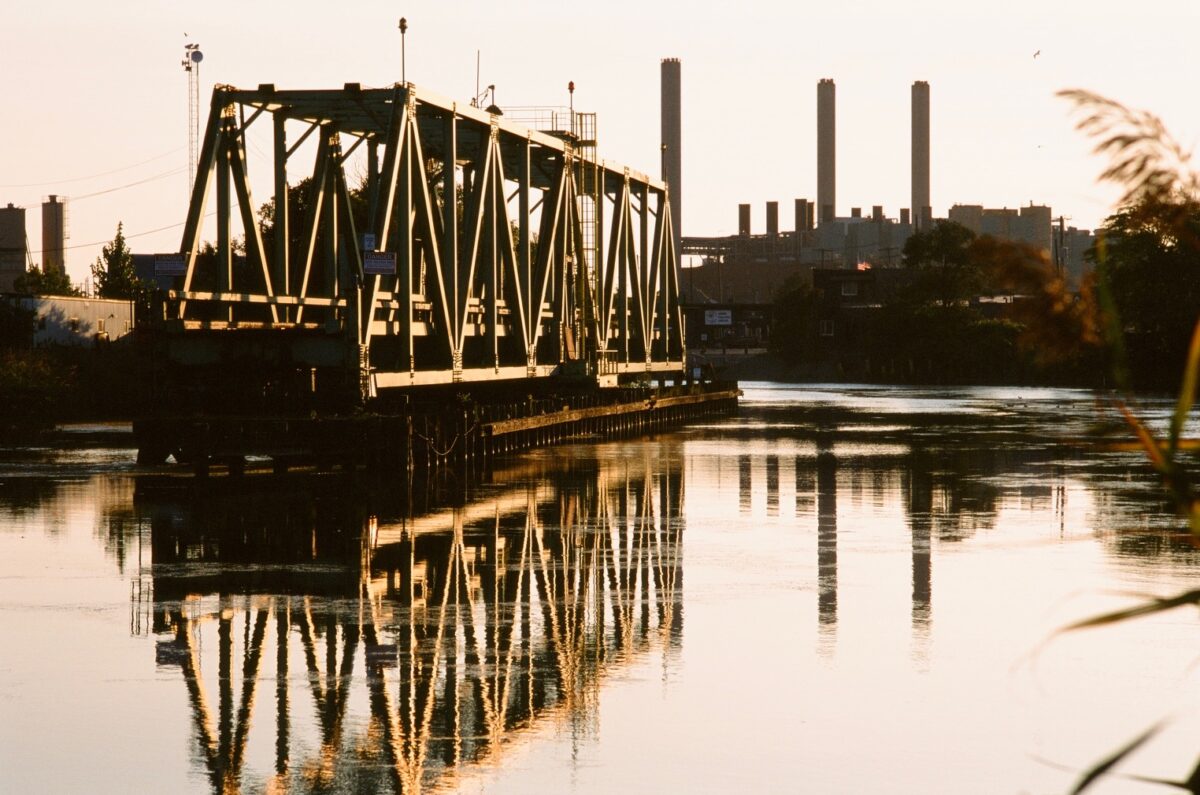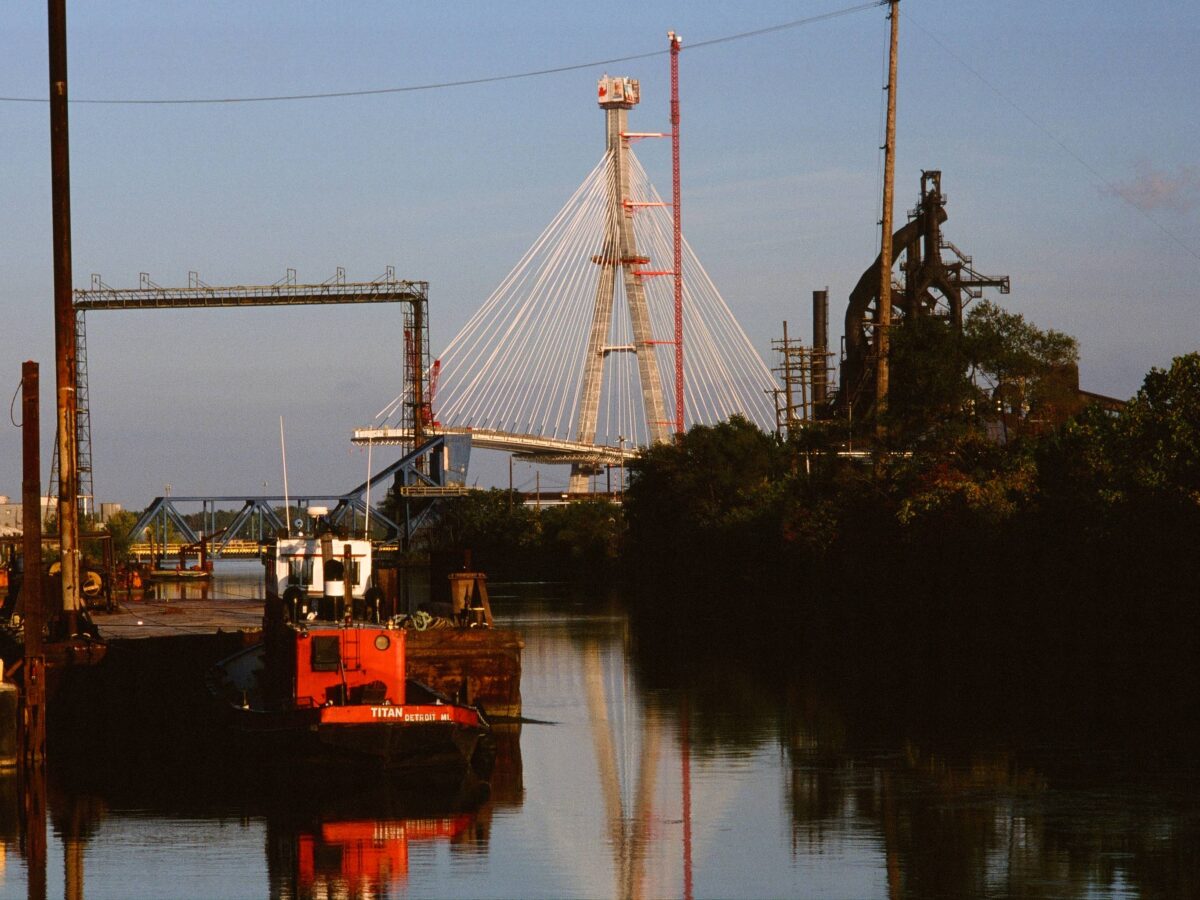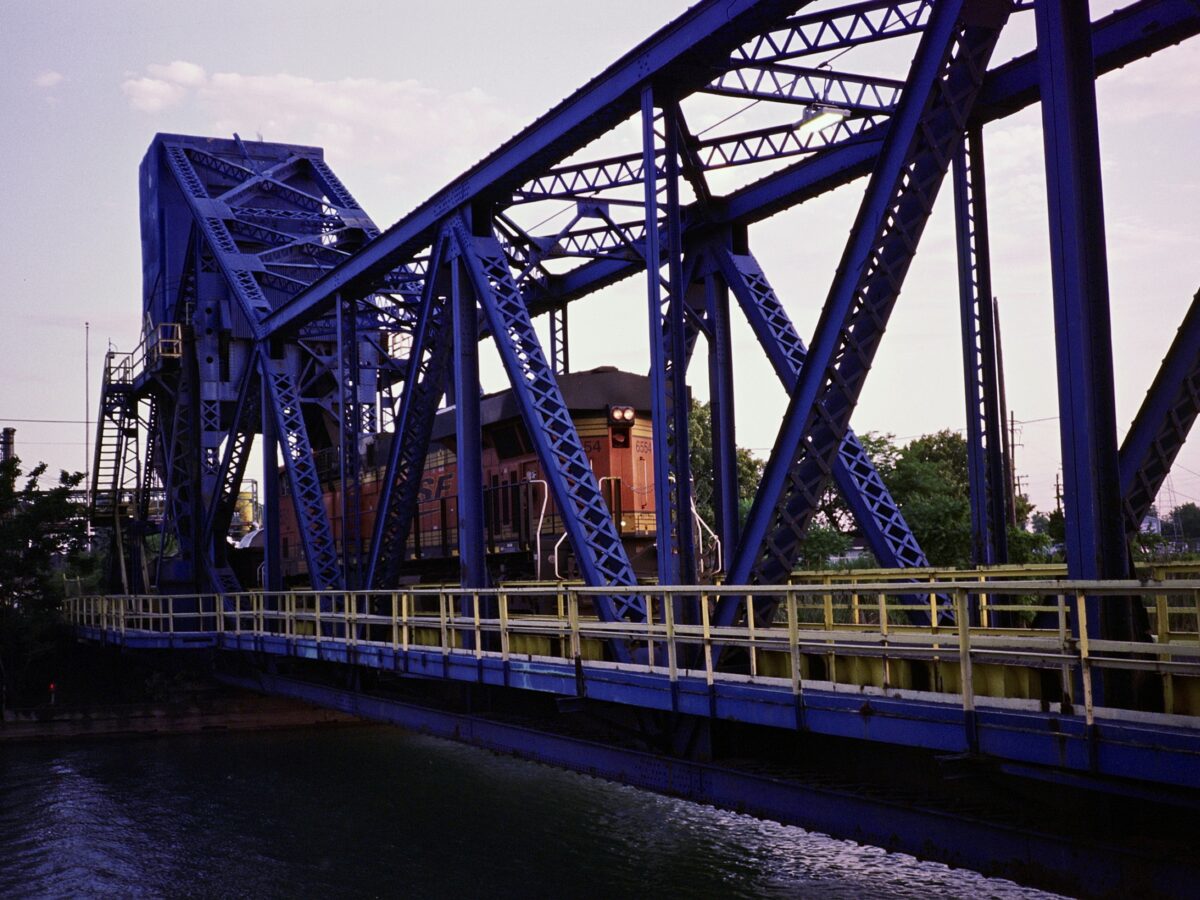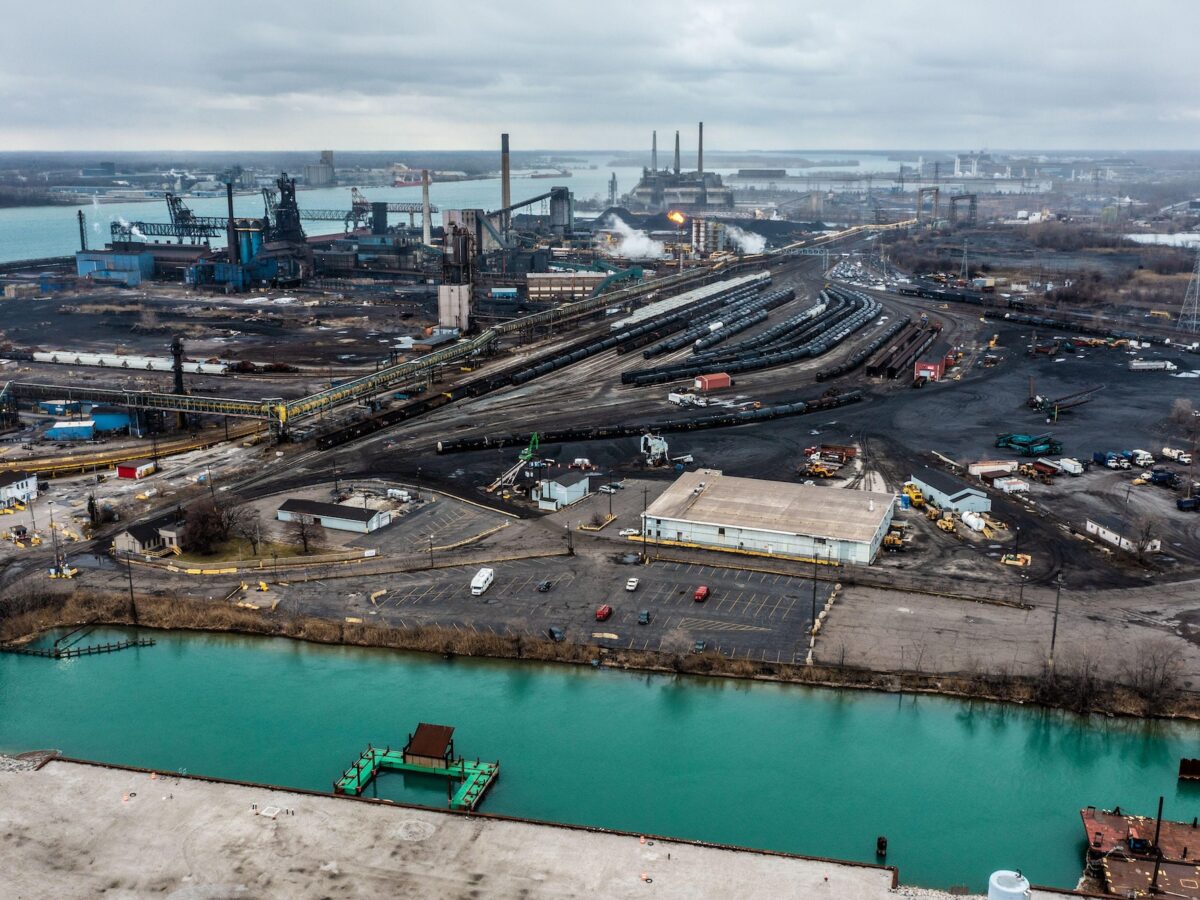Overview:
- DTE Energy and its subsidiaries realized an economic benefit of $70 million to $94 million during the time a Zug Island facility was in violation of the Clean Air Act, expert witness testifies.
- A bench trial started Monday in the EPA's lawsuit against the utility company.
- U.S. attorney says potential remedies for the Clean Air Act violations will be argued in the week ahead.
This story was produced with support of Internews’ Earth Journalism Network.
DTE Energy-owned companies are “active operators” of EES Coke Battery on Zug Island that make environmental decisions, not “distant, hands-off investors,” a U.S. attorney said Monday during a federal trial over the facility’s sulfur dioxide emissions.
The first day of the bench trial in the Environmental Protection Agency’s lawsuit against EES Coke Battery and DTE featured expert testimony from Dan Leistra-Jones, principal of Industrial Economics, a private consulting firm, on the relationship between DTE and EES Coke Battery.
The defendants realized substantial economic benefit of at least $70 to $94 million during EES Coke Battery’s period of noncompliance with the Clean Air Act, Leistra-Jones said.
U.S. District Judge Gershwin Drain denied a motion for summary judgment by DTE Energy last month and said there is evidence demonstrating that DTE Energy exercised control over EES Coke Battery’s emissions on Zug Island, supporting a finding that the utility is an operator of the facility under the Clean Air Act.
DTE Energy was added as a defendant in the case last year.
DTE calls shots at Zug Island facility: Expert witness
DTE Energy Services has a high degree of control over EES Coke Battery, including environmental decision making and operations, Leistra-Jones testified Monday.
His argument is based on reviewing hundreds of documents, including deposition testimony, internal documents such as inter-company agreements, emails, public records such as DTE financial statements and credit agreements, and permit applications, he said.
Environmental decisions for EES Coke Battery were made by employees of DTE Resources and DTE Energy Services, the consultant said.
Resources provided by DTE Energy Services to EES Coke Battery were detailed in a slide presentation in the courtroom: day-to-day management at the battery; administration of project documents including permits, environmental health, and safety; and compliance monitoring and notification of EES Coke Battery in the event of a breach.
“It’s unprecedented, the extent of services provided,” Leistra-Jones said.
DTE Energy Services employees were behind EES Coke Battery’s 2014 permit revision that led to the EPA’s lawsuit, “the central event of noncompliance,” Leistra-Jones said.
The energy company shows a high degree of control over EES Coke Battery, as DTE Energy controls all of the subsidiary’s cash, he said.
“It’s highly unusual for a company to rely exclusively on its parent company,” Leistra-Jones said.
MORE PLANET DETROIT REPORTING
Zug Island pollution lawsuit goes to trial: What it means for DTE Energy
A bench trial in the EPA’s lawsuit over EES Coke Battery’s sulfur dioxide emissions starts Monday.
DTE Energy lawyer: Utility not liable for Zug Island facility in Clean Air Act lawsuit
The EPA’s position of holding the parent company liable would “destroy” the point of corporations, and “pierce the corporate veil,” an attorney for DTE Energy and EES Coke Battery says in federal court.
Michigan regulators approve air pollution permit for Zug Island coke facility
Michigan regulators greenlight permit for a coke screener at DTE Energy-owned EES Coke Battery on Zug Island.
What’s ahead in Zug Island trial?
Potential remedies for EES Coke Battery’s Clean Air Act violations will be argued in the coming week, said U.S attorney Samantha Ricci.
Sierra Club attorney Mary Rock named pollution controls such as desulfurization, and mitigation projects including home air purifiers, EV infrastructure, and solar panels as possibilities in her opening statement.
“Pollution and public health mean something very specific to nearby communities,” Rock said.
The government is seeking injunctive relief and penalties of up to $109,024 per day, per violation from EES Coke Battery and DTE; and asserts that EES Coke Battery should cease operations until it is fully compliant with environmental regulations.
Epidemiologist Joel Schwartz, professor at Harvard T.H. Chan School of Public Health, is set to testify this week on his risk assessment of the Zug Island facility.
Editor’s note: This story has been updated to clarify U.S. District Gershwin Drain’s Aug. 25 ruling on a motion filed by DTE Energy.
Citing case law, Drain wrote: “There is evidence demonstrating that the DTE defendants actively participated in and exercised control over the facility’s operations regarding emissions, thereby supporting a finding that they are ‘operators’ under the Clean Air Act.”





